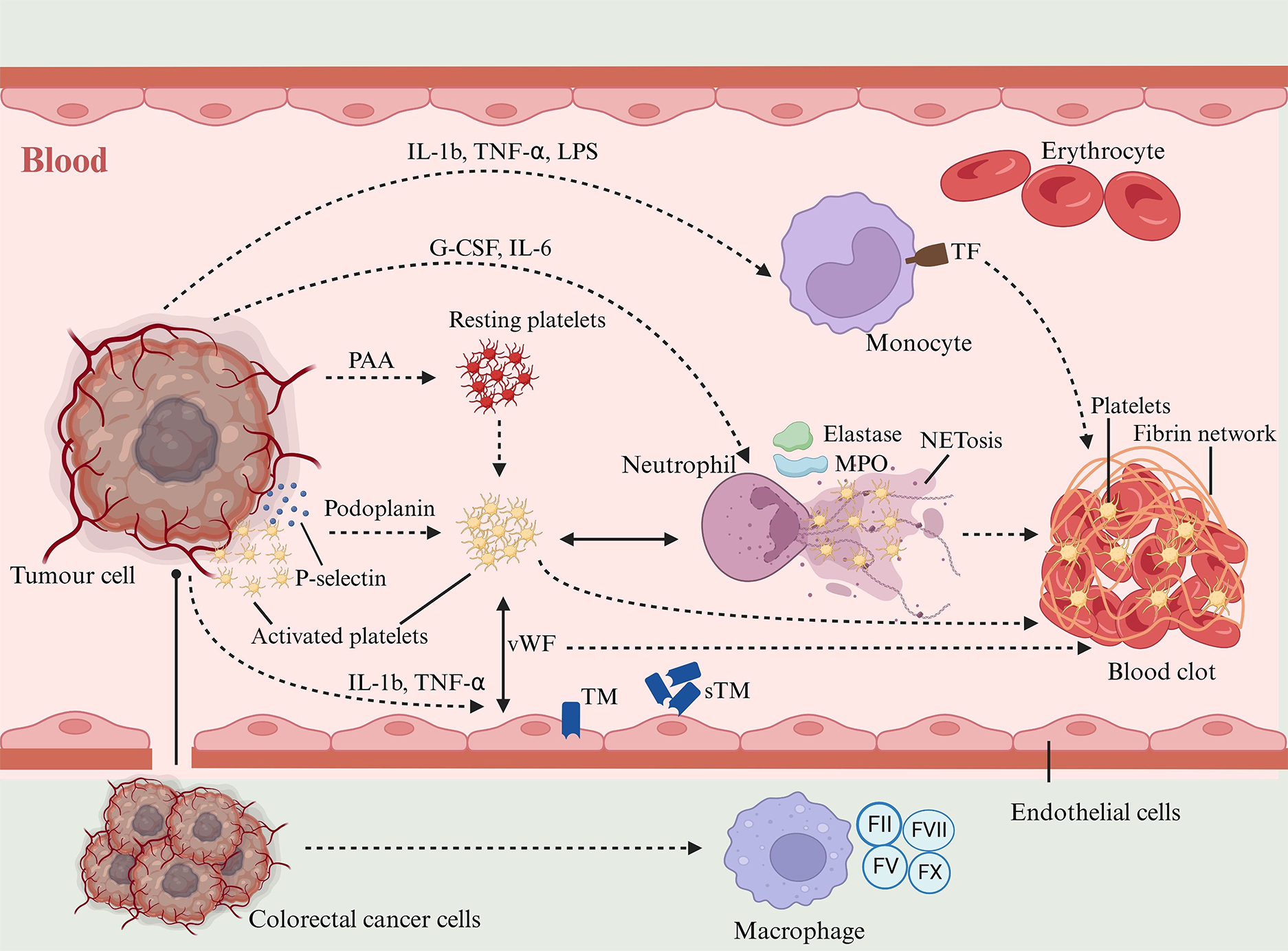Copyright
©The Author(s) 2025.
World J Gastroenterol. Apr 14, 2025; 31(14): 103901
Published online Apr 14, 2025. doi: 10.3748/wjg.v31.i14.103901
Published online Apr 14, 2025. doi: 10.3748/wjg.v31.i14.103901
Figure 3 Induction of procoagulant phenotype in host cells by colorectal cancer cells: A cascade of cellular interactions.
This section delineates how colorectal cancer cells orchestrate a procoagulant environment through dynamic interactions with host cells. These interactions occur via direct adhesion or through the release of soluble mediators, leading to the expression of a procoagulant phenotype in host cells. A key mechanism involves the secretion of platelet aggregation agonists by tumor cells, stimulating platelet aggregation. Tumor cells also express Podoplanin, which activates platelets. These activated platelets are pivotal in inducing neutrophil extracellular traps from neutrophils, further promoting thrombus formation by trapping and activating additional platelets. The role of activated platelets extends to enhancing blood hypercoagulability through interactions with endothelium-bound von Willebrand factor. In parallel, cancer cells secrete granulocyte colony-stimulating factor and interleukin-6 (IL-6), which activate neutrophils. The secretion of IL-1β, tumor necrosis factor-alpha, and lipopolysaccharide by tumor cells induces a thrombotic mechanism in monocytes, characterized by increased expression of procoagulant tissue factor. Moreover, tumor-infiltrating macrophages express coagulation factors II, V, VII, and X on their surfaces, contributing further to the procoagulant milieu. Finally, the secretion of inflammatory mediators by tumor cells alters the expression of endothelial cellular products such as thrombomodulin (TM), leading to elevated levels of soluble TM and a concurrent decrease in surface TM expression, thereby diminishing the anticoagulant properties of endothelial cell membranes. MPO: Myeloperoxidase; NETosis: Formation of neutrophil extracellular traps. Created in BioRender (Supplementary material).
- Citation: Xu DG, Tan J. Interplay of genetic and clinical factors in cancer-associated thrombosis: Deciphering the prothrombotic landscape of colorectal cancer. World J Gastroenterol 2025; 31(14): 103901
- URL: https://www.wjgnet.com/1007-9327/full/v31/i14/103901.htm
- DOI: https://dx.doi.org/10.3748/wjg.v31.i14.103901









